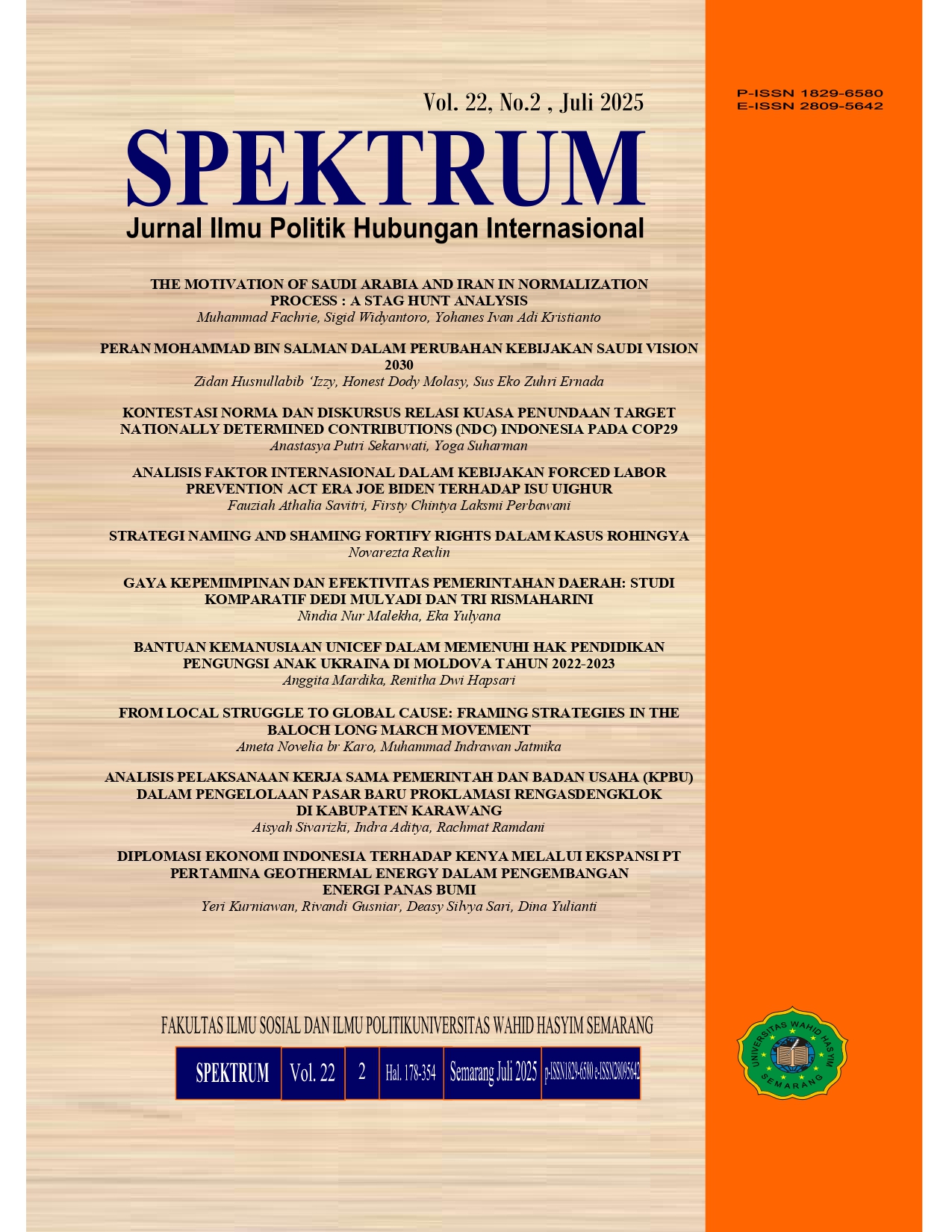Main Article Content
Abstract
This study is driven by the delayed of Indonesia’s NDC (Nationally Determined Contribution) related to the emission reduction agenda as outlined in the Paris Agreement. Previous research has centered on institutionalism, regime effectiveness, and the normative-juridical and conventional constructivism approaches. In contrast, this research contributes to the development of critical constructivism studies, especially those centered on norm contestation and power relations as determinants of Indonesia’s delayed fulfillment of the NDC at COP29. The norm contestation practiced by Indonesia presents a narrative of climate finance justice, identity construction, and power relations. The data was obtained from several official statements, including texts and speeches delivered at COP29. The study employs Critical Discourse Analysis (CDA) method, supported by the utilization of NVivo 12 as a tool to generate word cloud visualizations. The findings presented in this article demonstrate that the discourse surrounding climate finance has emerged as the prevailing narrative. Furthermore, Indonesia’s identity is characterized as a developing country or a victim of the climate crisis. Moreover, Indonesia also plays a role in representing the interests of the Global South. The examination of power relations emphasizes climate justice and inclusiveness in global climate governance. Therefore, this interpretation emerges as Indonesia’s discursive strategy to strengthen its bargaining position, addressing both quantitative aspects, such as funding, and qualitative aspects such as identity and power relations.
